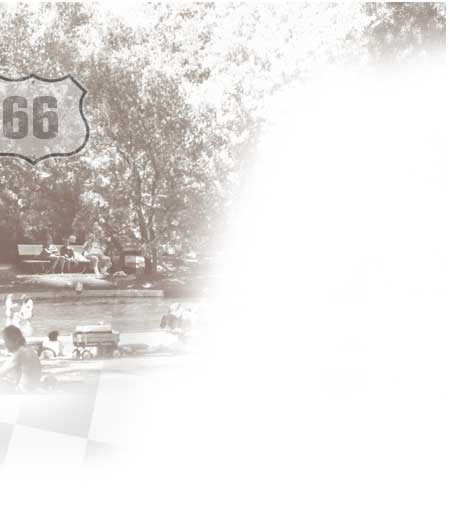



SEARCH FOR KNOWLEDGE

There are gems of wondrous brightness
Ofttimes lying at our feet,
And we pass them, walking thoughtless,
Down the busy, crowded street.
If we knew, our pace would slacken,
We would step more oft with care,
Lest our careless feet be treading
To the earth some jewel rare.
Rudyard Kipling If We Only Understood. Attributed to him in Masonic Standard (May 16, 1908). Not found. Claimed for Bessie Smith. Quote reported in Hoyt's New Cyclopedia Of Practical Quotations (1922), p. 419-23
“The general policy of the past has been to drive, but the era of force must give way to that of knowledge, and the policy of the future will be to teach and to lead, to the advantage of all concerned.”
Henry Gantt, (1910) Work, Wages, and Profits: Their Influence on the Cost of Living, p.112.
“If a man empties his purse into his head no man can take it from him. An investment in knowledge pays the best interest.”
Ben Franklin, as quoted in Exercises in English Grammar (1909) by M. A. Morse
“The only link between the verbal and objective world is exclusively structural, necessitating the conclusion that the only content of all 'knowledge' is structural. Now structure can be considered as a complex of relations, and ultimately as multi-dimensional order. From this point of view, all language can be considered as names for unspeakable entities on the objective level, be it things or feelings, or as names of relations. In fact... we find that an object represents an abstraction of a low order produced by our nervous system as the result of a sub-microscopic events acting as stimuli upon the nervous system.” 'Whatever you might say the object "is", well it is not.'
Alfred Korzybski, (1933) Science and Sanity, p. 20.
“A modern theory of knowledge which takes account of the relational as distinct from the merely relative character of all historical knowledge must start with the assumption that there are spheres of thought in which it is impossible to conceive of absolute truth existing independently of the values and position of the subject and unrelated to the social context.”
Karl Mannheim, (1929) Ideology and Utopia
“All schools, all colleges, have two great functions: to confer, and to conceal, valuable knowledge. The theological knowledge which they conceal cannot justly be regarded as less valuable than that which they reveal. That is, when a man is buying a basket of strawberries it can profit him to know that the bottom half of it is rotten.”
Mark Twain, Notebook (1908).
"A good head and good heart are always a formidable combination. But when you add to that a literate tongue or pen, then you have something very special."
“A man who knows how little he knows is well, a man who knows how much he knows is sick.”
Witter Bynner, The Way of Life (1944)
“The improvement of understanding is for two ends: first, our own increase of knowledge; secondly, to enable us to deliver that knowledge to others.”
John Locke, 1632-1704
"Reading furnishes the mind only with materials of knowledge; it is thinking that makes what we read ours."
John Locke, 1632-1704
“The belief that there is only one truth, and that oneself is in possession of it, is the root of all evil in the world.”
“I am now convinced that theoretical physics is actually philosophy.”
“Intellect distinguishes between the possible and the impossible; reason distinguishes between the sensible and the senseless. Even the possible can be senseless.”
Max Born, 12/11/1882 Breslau, Germany – 1/5/1970 Gottingen, Germany
“I hold all knowledge that is concerned with things that actually exist – all that is commonly called Science – to be of very slight value compared to the knowledge which, like philosophy and mathematics, is concerned with ideal and eternal objects, and is freed from this miserable world which God has made.”
“The good life is one inspired by love and guided by knowledge.”
Bertrand Russell, (1925) What I Believe
“All definite knowledge — so I should contend — belongs to science; all dogma as to what surpasses definite knowledge belongs to theology. But between theology and science there is a No Man’s Land, exposed to attack by both sides; this No Man’s Land is philosophy.”
Bertrand Russell, (1925) A History of Western Philosophy. p. xiii
“There is much pleasure to be gained from useless knowledge.”
Bertrand Russell, (1935), In Praise of Idleness and Other Essays, Ch. 2: 'Useless' Knowledge.
"Knowledge," in the sense of information, means the working capital, the indispensable resources, of further inquiry; of finding out, or learning, more things. Frequently it is treated as an end in itself, and then the goal becomes to heap it up and display it when called for. This static, cold-storage ideal of knowledge is inimical to educative development.
John Dewey, (1916) Democracy and Education
“The notion that "applied" knowledge is somehow less worthy than "pure" knowledge, was natural to a society in which all useful work was performed by slaves and serfs, and in which industry was controlled by the models set by custom rather than by intelligence. Science, or the highest knowing, was then identified with pure theorizing, apart from all application in the uses of life; and knowledge relating to useful arts suffered the stigma attaching to the classes who engaged in them.”
John Dewey, (1916) Democracy and Education
“I am enough of an artist to draw freely upon my imagination. Imagination is more important than knowledge. For knowledge is limited, whereas imagination embraces the entire world, stimulating progress, giving birth to evolution.”
Variant: “Imagination is more important than knowledge. Knowledge is limited. Imagination encircles the world.”
Albert Einstein, in "What Life Means to Einstein: An Interview by George Sylvester Viereck" in The Saturday Evening Post (26 October 1929)
“Imagination is more important than knowledge. For knowledge is limited, whereas imagination embraces the entire world, stimulating progress, giving birth to evolution.”
Albert Einstein, (1931) Cosmic Religion: With Other Opinions and Aphorisms, p. 97
“As our circle of knowledge expands, so does the circumference of darkness surrounding it.”
Albert Einstein, as quoted in Paper Prototyping: The Fast and Easy Way to Design and Refine User Interfaces (2003) by Carolyn Snyder
“I want to know God's thoughts — the rest are mere details.”
Albert Einstein, as quoted in "Einstein's Unfinished Symphony" at BBC Science & Nature
“At the end of the day, the circumstances of your life — what you look like, where you come from, how much money you have, what you’ve got going on at home — none of that is an excuse for neglecting your homework or having a bad attitude in school.”
Barack Obama, 9/8/2009 Back-to-school-speech Arlington, VA
“The business of life is the acquisition of memories. In the end that’s all there is.”
Carson, Head Butler in “Downton Abbey,” as written by Julian Fellowes
“I think therefore I am.” Cogito ergo Sum
René Descartes, born in La Haye en Touraine, France (1596).
He has been called the father of modern philosophy. This builds on Augustine’s “If I am mistaken, I am.”
“It is impossible for a man to learn what he thinks he already knows.”
Epictetus
“Education is the most powerful weapon which you can use to change the world.”
Nelson Mandela, 7/18/1918 – 12/5/2013
Born Rolihlahla Mandela in Mvezo, South Africa
“Every formula which expresses a law of nature is a hymn of praise to God."
Maria Mitchell, (born 1818) first acknowledged female astronomer.
"The universe is not a fixed sum, in which the amount you know subtracts from the amount you don't.”
Pico Iyer, New York Times 3/21/2014
“The more we think we know, the greater we find is our ignorance.”
Gardiner G. Hubbard, National Geographic Society 1888
How Poets Addressed the Search for Knowledge
Alicia Ostriker - Thirsting
Archibald Lampman - Knowledge
Kahlil Gibran - On Self-Knowledge
Michael Levy - The Greatest Gift of All
William Wordsworth - The Tables Turned


